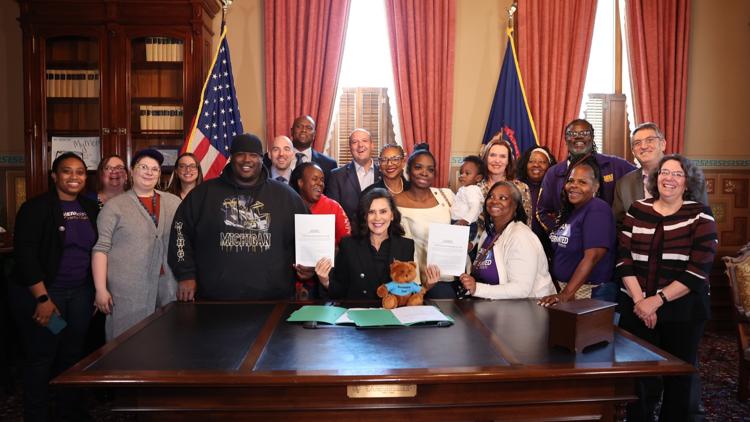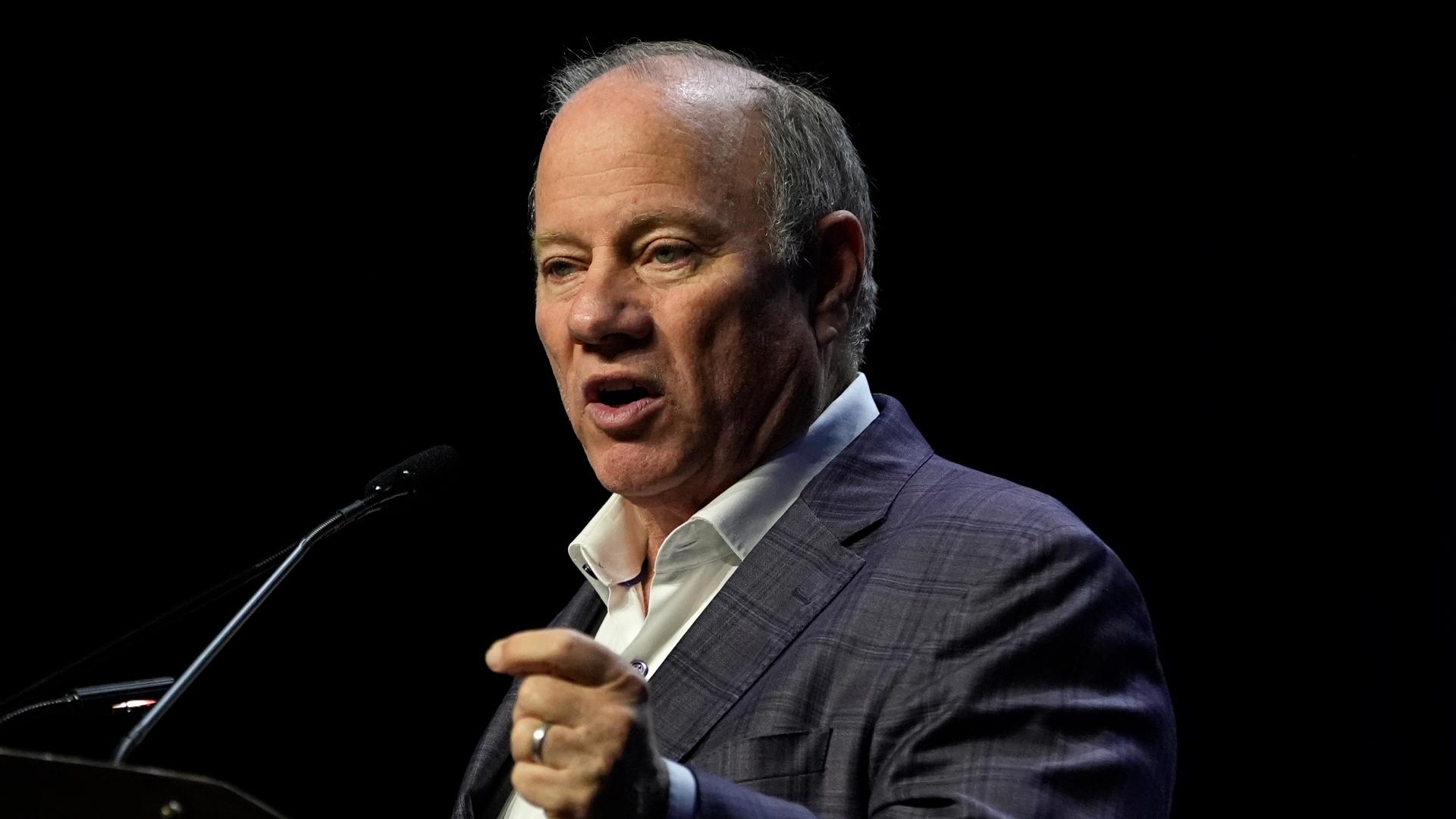LANSING, Mich. — In a flurry of signatures, Michigan Governor Gretchen Whitmer signed 17 bills into law Tuesday.
The bills ranged from hospital funding to the unionizing of an often overlooked sector of the healthcare industry.
“These bills will make a real difference in people’s lives by expanding access to healthcare, protecting workers’ rights, and putting money back in Michiganders’ pockets,” said Gov. Whitmer. “From ensuring 35,000 home care workers can bargain for better pay and benefits to ensuring every Michigander can access quality healthcare regardless of their zip code, let’s keep working together to make sure that everyone can make it in Michigan.”
Senate Bills 790 and 791 are designed to allow individual home help caregivers in Michigan to unionize and participate in collective bargaining. Senate Bill 790 achieves this by categorizing individual home help caregivers as public employees of the director of the Department of Health and Human Services for the sole purpose of collective bargaining. The two bills passed strictly on party lines in both the House and Senate.
Senate Bill 701 aims to expand health care access in rural Michigan through amending restrictions on the funding Michigan hospitals receive from the state. The bill hopes to achieve that by changing the definition of what a rural hospital is to include counties with 195,000 people or less and providing more funding to those hospitals. The new definition of a rural hospital will add Muskegon County into the rural hospital pool. The bill passed with bipartisan support in both the House and Senate.
Senate Bill 817 provides appropriations of funding for outdoor recreation from the Michigan Natural Resources Trust Fund. In total, 18 land acquisition projects and 35 development projects are to receive funding. The bill passed with bipartisan support in both the House and Senate. In West Michigan, several projects are being funded:
- Ottawa County is to receive $1.642 million for land acquisition at the Rosy Mound Natural Area.
- Holland Charter Township is to receive $300,000 for a trailhead and connector for the Middle Macatawa Trail System.
- Saugatuck Township is to receive $300,000 for funding of Blue Star Trail between Maple Street and Beeline Trail.
- Kent County is set to receive $1.2 million for land acquisition at the Rouge River State Game Area.
- The City of Kentwood is to receive $300,000 for Thornapple Trail Improvements.
- Cedar Springs is to receive $300,000 for Heart of Cedar Springs Playground development.
Senate Bill 351 prohibits discriminatory practices in public places against breastfeeding and breast pumping. The bill passed with mostly bipartisan support in both the House and Senate.
Senate Bill 150 aims to allow the small claims division of the Michigan Tax Tribunal to have more accessible small claims hearings by allowing them to be conducted virtually. The bill passed with bipartisan support in both the House and Senate.
Senate Bill 366 increased natural gas safety violation fine amounts to be in line with federal fine amounts. The bill passed with mostly bipartisan support in both the House and Senate.
Senate Bill 744 changes the requirements for a teacher to successfully complete their probationary employment period to be slightly more broad. The bill passed mostly along party lines in both the House and Senate.
Senate Bills 926, 931, 933 and 934 aim to expand Michigan's gaming and gambling prevention programming with more funding. Some of that additional funding is earmarked for early intervention initiatives and promoting responsible gaming. The bills were passed mostly along party lines in both the House and Senate.
Senate Bill 928 aims to expand Medicaid coverage of birth expenses by eliminating a clause that denies coverage under certain circumstances. Lawmakers backing the bill estimated that about 66,000 births could now receive full coverage of birth expenses. The bill passed along party lines in both the House and Senate.
Senate Bill 929 aims to allow low-income Michiganders access to a broader range of care centers by repurposing Medicaid funding. The bill passed along party lines in both the House and Senate.
Senate Bill 932 will increase access to the state's Family Independence Program for Michigan families by increasing the time a family can use the program from 48 months to 60 months. The bill passed along party lines in both the House and Senate.
Senate Bill 935 repeals a section of The Social Welfare Act of 1939 that required reimbursement to counties for the cost of juvenile justice services. The fund used was known as the "Raise the Age Fund" and was part of a "Raise the Age" legislative package that ensured children under the age of 17 were placed in juvenile correctional facilities. The bills were passed mostly along party lines in both the House and Senate.
Senate Bill 716 allows historical vehicle owners the option to purchase personalized license plates. The bill was passed with unanimous bipartisan support in both the House and Senate.



